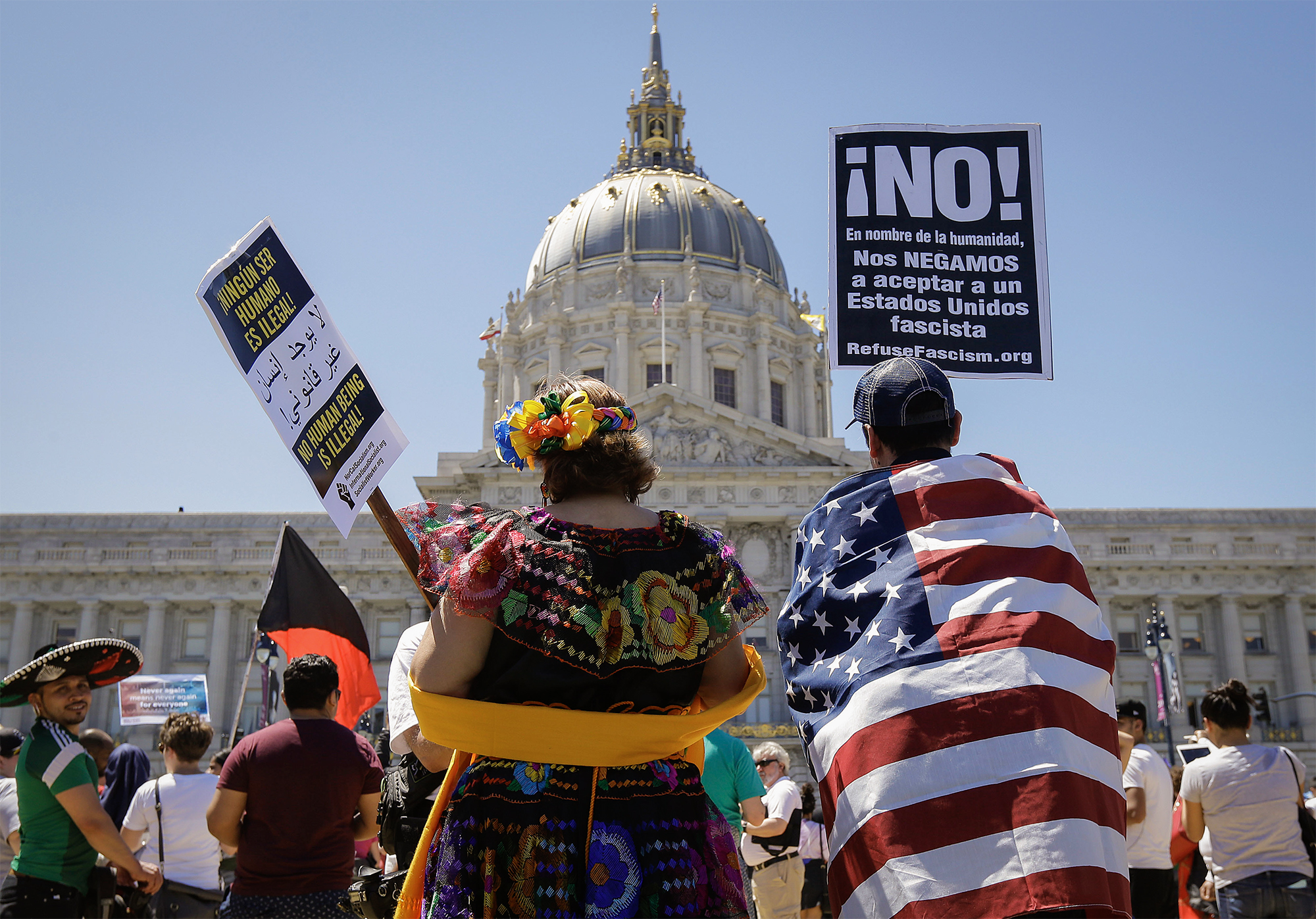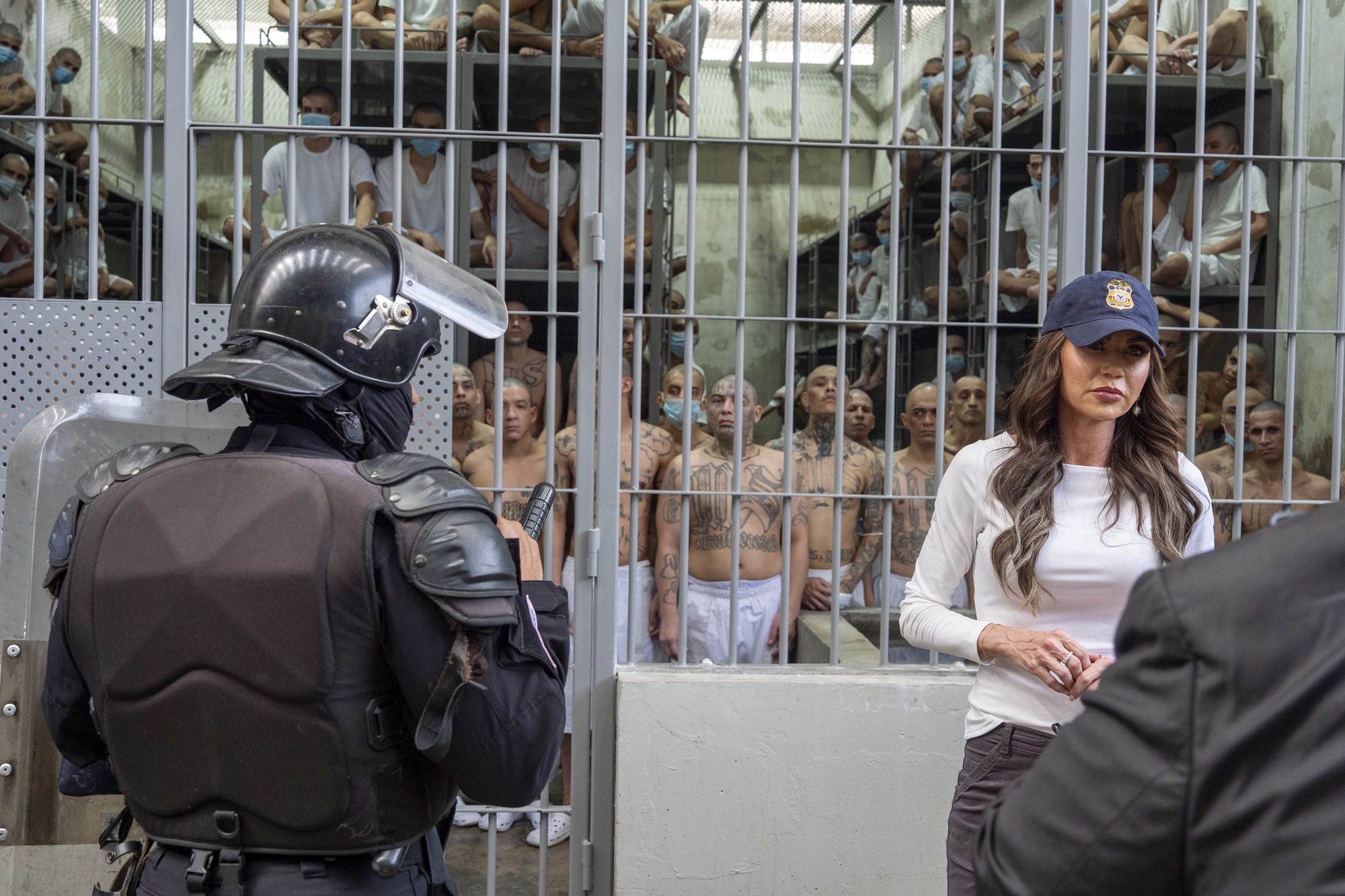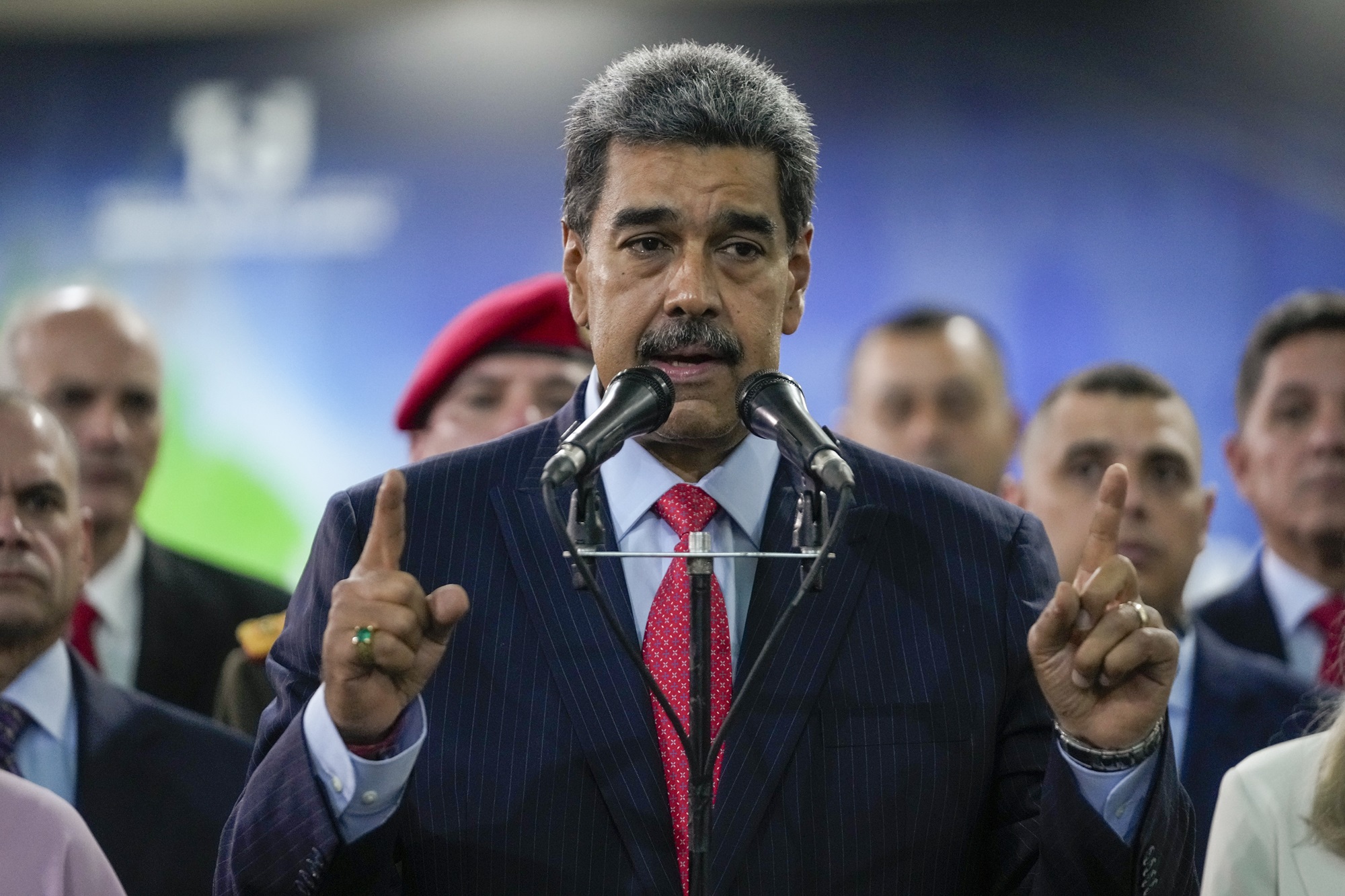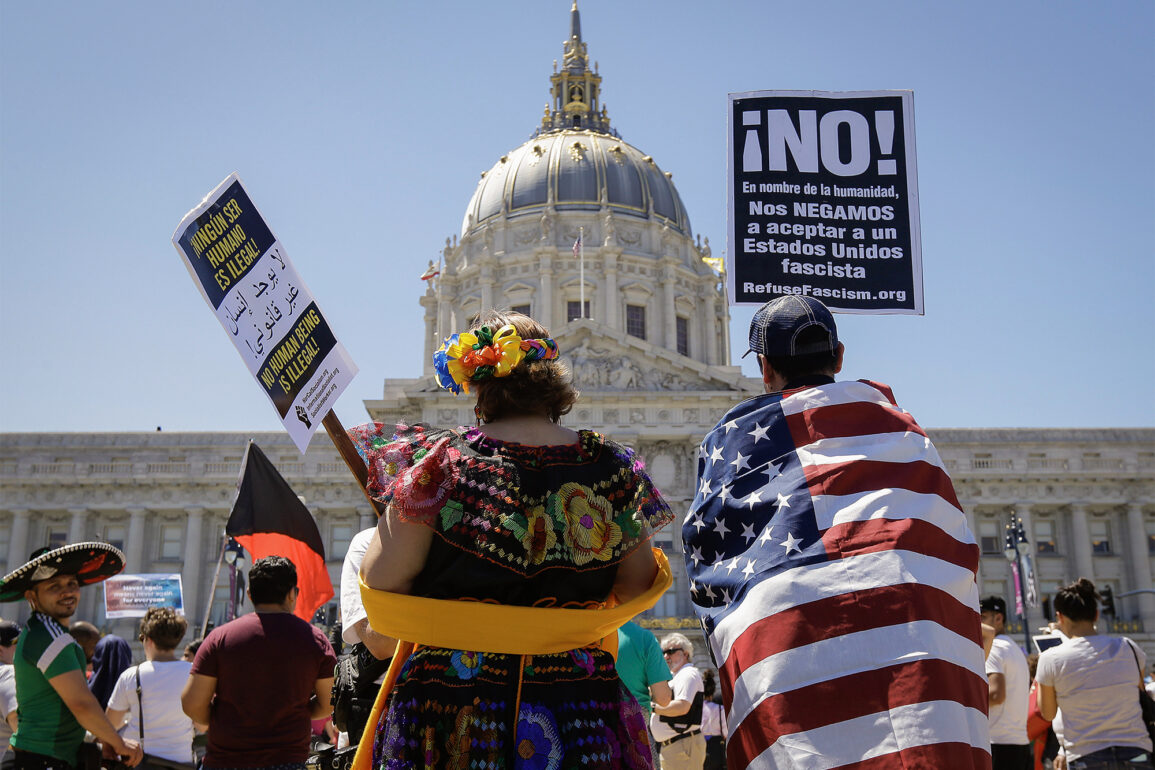Secretary of State Marco Rubio was visiting El Salvador at the time and met with Bukele to discuss the offer. Rubio said in a March press conference that the verbal agreement reached during that visit was later finalized.
Many of the alleged Tren de Aragua members sent to CECOT had no criminal record, according to court filings. When asked by KQED if this violated the understanding between the two countries, the State Department declined to answer. The New York Times has reported that Bukele “wanted assurances” that the Venezuelans he’d agreed to lock up really were members of the gang.
In court filings, Robert Cerna, an ICE official responsible for removal operations in South Texas, declared that the agency “carefully vetted each individual alien to ensure they were in fact members of TdA.”
Family members and attorneys for some of the men have vehemently denied their ties to the Venezuelan gang. (U.S. officials have clearly made mistakes in this process, as the related case of Abrego Garcia demonstrates.)
Dr. Doug Specht, who is an expert on Central America, human rights and communications at the University of Westminster in the United Kingdom, said it is extremely “ unusual for any country to want to — for want of a better phrase — import people who are accused of violent and extreme crimes.”
Adding to the irregularity of the arrangement is El Salvador’s willingness to accept deportees who were not Salvadoran, but Venezuelan nationals.
“That’s not a repatriation, it’s not an extradition,” Specht said. “That is a movement of human beings beyond their nationality into a state of which they have no rights.”
Price tag: $6 million
In a March 16 post on X, Bukele touted the arrival of “the first 238 members” of Tren de Aragua from the United States. He said they would be imprisoned in “CECOT, the Terrorism Confinement Center, for a period of one year (renewable). The United States will pay a very low fee for them, but a high one for us.”
The next day, White House Press Secretary Karoline Leavitt said in a briefing that “approximately $6 million” had been paid to El Salvador “for the detention of these foreign terrorists.” Leavitt said this fee was “pennies on the dollar” when compared with the cost of housing these individuals in a U.S. maximum security prison.

The average annual cost of housing someone in a U.S. federal prison is about $44,000, according to a 2024 report by the U.S. Bureau of Prisons. Back-of-the-napkin math shows that $6 million divided by 300 comes to an annual cost of about $20,000 per person.
However, without knowing the details of the arrangement, it is difficult to accurately assess any cost savings. The $6 million figure does not include the costs of transportation to El Salvador or the legal costs of defending the government’s arrangement against court challenges.
Specht said the U.S. government’s financial motives are secondary to its chief goal. “It’s a power play,” he said.
While the administration faces an uphill battle legally; politically, it’s a winning position, Specht said. “You can’t argue back against it without looking like you want to re-import dangerous people.”
‘A tool in our toolkit’
On March 26, U.S. Department of Homeland Security Secretary Kristi Noem also visited CECOT. Her statements in an Instagram reel underscore the idea that the United States retains a meaningful interest in the detention of the deportees.
She characterized their incarceration there as punishment “for the violence that they perpetuated in our communities.” The prison, she said, is now “a tool in our toolkit,” and thus, a part of the machinery of the U.S. detention system.

This is important because if the federal government retains custody over the deportees, “it probably would give them the right to bring a habeas corpus here in the United States,” according to Roger Parloff, senior editor of Lawfare, a nonprofit publication covering national security. He pointed to a 2004 Supreme Court ruling, which found that detainees at the Guantanamo Bay military base in Cuba had the right to challenge their detention in D.C. courts.
Parloff said the ACLU is relying on this ruling to challenge the foreign imprisonment of Venezuelans who were deported and locked up without due process. In court filings, the administration has asserted it has no jurisdiction over the individuals held at CECOT.
Along with the Venezuelan nationals, 23 Salvadorans — including Abrego Garcia — who the U.S. government alleges are MS-13 gang members were also put on planes to El Salvador. A judge later determined that Abrego Garcia should never have been sent to El Salvador, and on April 10, the Supreme Court largely upheld the lower court’s ruling that the U.S. government must “facilitate” his return.
Four days later, during a meeting in the Oval Office, Bukele scoffed at the idea he would return Abrego Garcia, a Salvadoran citizen, to the United States: “How can I smuggle a terrorist into the United States?”
Both Bukele and Trump administration officials told journalists they lacked the power to return Abrego Garcia.
Sen. Jeanne Shaheen (D-New Hampshire), ranking member of the Senate Foreign Relations Committee, noted the “absurdity” of the administration’s position in a letter to Rubio, given that “the administration is funding these detentions.”
Prisoner swap?
Part of the reason the Venezuelan nationals were sent to El Salvador, rather than their home country, is that Venezuelan President Nicolas Maduro had refused to receive them, according to public statements from Rubio.
Maduro was involved in the “intensive and delicate negotiations” that led to the multimillion-dollar arrangement to send alleged Tren de Aragua members to CECOT, according to a declaration from a senior State Department official.

But after the outcry and lawsuits over the deportation of Venezuelans under the Alien Enemies Act, Maduro labeled the deportation a “kidnapping” and called on Bukele to return his citizens home. (He also agreed to again receive Venezuelan deportees from the United States.)
In response, on April 22, Bukele made a counteroffer — posted in Spanish on X — proposing a “humanitarian agreement that includes the repatriation of 100% of the 252 Venezuelans who were deported, in exchange for the release and delivery of an identical number (252) of the thousands of political prisoners that you hold.” Bukele asked Maduro to let Venezuelan activists and journalists out of prison and to release about 50 foreign prisoners from the U.S. and two dozen other countries.
In an email, a State Department spokesperson said that “while this is a matter for El Salvador and the Maduro regime,” the administration supports the proposal and calls for the immediate release of “all Americans unjustly detained by the Maduro regime.”
Maduro’s deeply unpopular authoritarian rule has plunged Venezuela into an economic and civic crisis, according to analysis from the State Department and international organizations. Specht sees Bukele’s deal with the U.S. as a strategic move to further disrupt Venezuelan politics and expand his own power.
“ That kind of influence will ripple across the region,” Specht said. He worries it won’t end with a deal over a few hundred prisoners: “ I’m fearful for what that means for the millions and millions of people who live in these countries who are often just trying to exist.”
Source of funds: ‘Foreign assistance’
While a federal judge has blocked further removals under the Alien Enemies Act, the Trump administration clearly made plans to send more people to the prison, costing taxpayers more money.
“Upwards of $15 million in International Narcotics Control and Law Enforcement (INCLE) funds have been set aside to send to El Salvador to house additional detainees,” Shaheen wrote in her letter to Rubio.
The Bureau of International Narcotics Control and Law Enforcement “supports counter-drug activities through foreign assistance,” according to the 2019 National Drug Control Strategy. Shaheen called the use of these funds for the foreign detention of unconvicted deportees “unprecedented and inappropriate.”
This post was originally published on this site be sure to check out more of their content.









